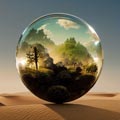Nothing is Chic! Living in a Land of Fragrance

 In previous generations, ‘having’ was increasingly chic. Opulence was defined by having fancy cars, houses with swimming pools and gardens, lots of investments, brand-name watches and jewelry – whatever stuff one could add to the collection, looking more successful than others, at least looking good from the outside – and seemingly for some too much is not quite enough. This old picture of success has not changed very much today. The joy and seduction of being successful and having things for one’s leisurely entertainment must be enormous that so many people transculturally in neoliberal economies are in search of the same things.
In previous generations, ‘having’ was increasingly chic. Opulence was defined by having fancy cars, houses with swimming pools and gardens, lots of investments, brand-name watches and jewelry – whatever stuff one could add to the collection, looking more successful than others, at least looking good from the outside – and seemingly for some too much is not quite enough. This old picture of success has not changed very much today. The joy and seduction of being successful and having things for one’s leisurely entertainment must be enormous that so many people transculturally in neoliberal economies are in search of the same things.
All these accumulations supposedly emanate a good ambiance. Each addition of stuff gives exhilaration to the mood, and the mundane state of existence is repressed by buying and accumulating. Acquisition produces a dopamine neurotransmitter which generates an addictive short-lived hit of pleasure, requiring more and more acquisitions to maintain the pleasurable sense. Being surrounded by material stuff year after year, the mind’s operation becomes geared toward maintaining and increasing such acquisitions. Meanwhile, watching over one’s growing wealth is another source of excitement, with complicated and long-term ramifications that are insidious and dangerously easy to underestimate. The psychological and physiological side effects of ‘having’ are internal, invisible to others, and the turmoil of hoarding and ‘having’ at some point turns the pleasant fragrance of living into a sniffing stress. Every ‘having’ even though not so apparent on the surface, costs time, energy and takes its toll at one point or another.
For all one knows we may reach our limits and burn outs in such striving for acquisition as the burdens of ‘having’ increase. Perhaps in emerging generations it will instead be chic to have or wish for ‘nothing’. ‘Nothing’ does not here have the negative connotation of lacking the basics for decent and comfortable living. Rather ‘nothing’ is a foundational philosophy of not giving in to the temptation to fill one’s living space with more and more banalities and distractions. To accumulate and manage these banalities requires time and space, two valuable assets. With a focus on having ‘nothing’, time and space can increase, instead of stuff. Nothing is chic requires psychological maturity and humility.
Time and space allow a person to experience the fine aspects of life with deeper awareness. In this state of mind, if, for example, one has no car but instead walks, rides a bicycle or takes public transportation, one has more time to reflect. Less is required to cover the costs of the car’s payment, insurance, gas, parking, repair, a garage, etc. This translates to less work and less income needed, but much more riches of time and space. Even the toll of driving itself is another exertion on the system that is removed. In other words, the math of not having a car (or other loads of belongings) is simple: the less we have, the less money we need, and the less we need to work to the point of exhaustion, and the more time and space we have. Time and space become the desirous items. Wishing for ‘nothing’ may then gradually become an integrated attitude and a path to a more sophisticated philosophy of life.
Not having clears the mental space to cultivate calmness. Therefore, ‘nothing’ is chic and ‘not having’ shall gradually become an enviable status. Freedom from the bondage of running after money to buy more things awakens the sagacious mind which searches for the kind of comfort that Nature provides for each and every human – that which is blurry and lost in the culture of materialism, consumerism and deflective entertainism. Thus, a mindset of ‘nothing is chic’ has a great potential to become a counter to the culture of ‘having’. This counterculture may reduce consumerism, pollution and inequities, while domesticating wild greed. ‘Not having’ first requires a personal paradigm shift to appreciating a frugal life but with a tremendously spacious room in the mind. This paradigm shift cannot become a true reality in societies and economic systems that are founded on competition for domination and superiority to others for some, and survival mode for others. It also requires a global economic shift in which the idea of having ‘nothing’ can be entertained, at least on a philosophical level, and eventually be actualized. Not wishing for more material stuff is an approach that is truly human, an approach which eventually needs realistic recognition.
In the 1976 book Haben oder Sein (‘To Have or To Be’) by social psychoanalyst Erich Fromm, it is argued that ‘being’ is the only valuable thing we have before our death; our wealth becomes useless after we die. Desire after desire feeds into hedonism and ego, and then it impairs the collective system because it only serves the economic elites who possess, rather than the society at large.
Our mind is the most advanced ‘iphone,’ so to speak, that we have inherited in the course of our evolution – a mind on which every possible mental ‘App’ can be downloaded and installed, providing us the fine skills to deal with life circumstances. Wealth can never do that. A fantastic mind can deal with the dilemmas of self, society, and the conundrums of the world as well as with old age and mortality. The mind has all the ‘software’ to understand life in its entirety if we give it the space it needs to function. Our mind in the Second Enlightenment may become the main source of our sustainability. Our best investment and our best wealth is a sound mind that can save us from our temptations. The mind intrinsically needs nothing, and yet is by itself complete and content.
Therefore, ‘nothing is chic’ is perhaps one of the wonderous steps that make humans unique as beings who can depend on the most fundamental dimensions of their mind. Humans have the power to interact with other humans, with animals, plants, and birds, to observe the movements of clouds and experience awe by viewing the cosmos at night.
Heraclitus, the pre-Socratic philosopher, was on track when he invited people to understand matters of life and the nature of things, rather than to merely know them. He said that many Greek philosophers by and large knew much, but they didn’t necessarily understand what they knew. The Land of Understanding is a Land of Fragrance, a land with many scents of existence wafting by every day. In the Land of Fragrance, not much material stuff is needed, only free space and time that allow the mind to breathe in the scent.
(window photo attribution © virtosmedia, 123RF Free Images )
